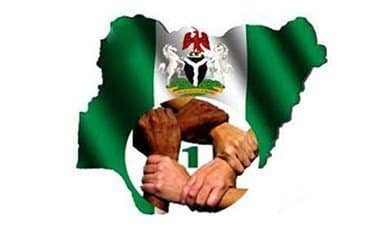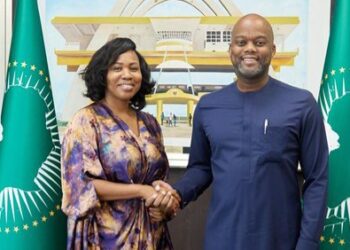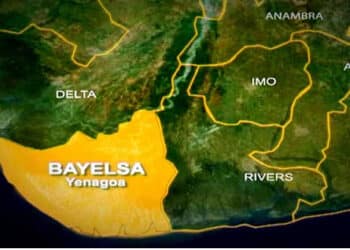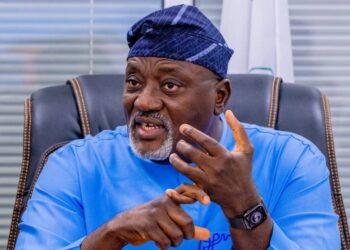The year 2019, which would become history by 12:00midnight today would not be easily forgotten in the history of Nigeria, and by Nigerians (by both the young and the old, the rich and the poor, those who govern and the governed). This is because the year’s landscape was dotted by interestingly historic events – good, bad and ugly.
Some of the heavy events include:
Onnoghen’s Suspension and Conviction
The year, which began on a rather calm note, took a remarkable turn early January with the filing of false assets declaration charges against the then Chief Justice of Nigeria, Justice Walter Onnoghen, at the Code of Conduct Tribunal.
Onnoghen’s suspension from office on January 25 by the President Muhammadu Buhari (retd.), acting on a controversial ex parte order of the Danladi Umar-led CCT; the arraignment of then Nigeria’s number one judge before the CCT in February; and Onnoghen’s eventual conviction of criminal charges in April, were all unprecedented events never witnessed before in the history of the country. These events left Nigerians with a potpourri of feelings, more so, as the handling of the then CJN’s case threw up constitutional and legal questions and caused a political uproar, that even Nigeria’s international friends, including America and the EU, could not but express misgivings about the process. However, the Presidency insisted that the retired General followed the law in Onnoghen’s suspension and his immediate replacement with Justice Tanko Muhammad.
General Elections and Buhari’s Victory
The 2019 general elections which took place on February 23 and March 9, was historical on many fronts – a total of 91 political parties registered and contested in the polls, with 73 of them fielding presidential candidates. The ballot papers for this year’s polls were the longest ever prepared in Nigeria’s history.
Buhari won the second term of four years in office by defeating 72 political rivals in the February 23 presidential poll. The retired General, who came tops with 15,191,847 votes, was inaugurated for a second term on May 29.
His closest rival, Atiku Abubakar, who got 11,262,978 votes, rejected and challenged the election result from the Presidential Election Petitions Tribunal up to the Supreme Court but he lost all the way. The apex court, in a summary judgment on October 30, affirmed Buhari’s victory and sealed Atiku’s defeat.
El-Zakzaky’s Brief Release
After being detained for four years in defiance to court orders, the Department of State Services on August 11 this year let out the leader of the Islamic Movement in Nigeria, Sheik Ibraheem El-Zakzaky, to travel to India for medical treatment. The medical trip was, however, short-lived and El-Zakzaky was flown back into the country and taken straight back into the DSS cell where he remains till date.
El-Zakzaky and Zeenat were constantly in the news in 2019, with incessant protests by IMN members, also known as Shi’ites, to demand their unconditional release. The protests, many times, turned violent in the face of police resistance.
Sowore Arrested
One of the issues that dominated public discourse in Nigeria in 2019 and also generated international reactions was the arrest of SaharaReporters publisher, Omoyele Sowore, on August 3, ahead of his planned nationwide #RevolutionNowprotest.
The detention of Sowore and his co-defendant, Olawale Bakare, in spite of express orders of court for their release, caused a backlash for the Buhari regime.
As a result of the regime’s penchant for ignoring court’s pronouncements as exhibited in the cases of El-Zakzaky, Sowore, and a former National Security Adviser, Col. Sambo Dasuki (retd.), PUNCH newspaper took an editorial position to address Buhari with his military title of Major General, rather than President.
In an unprecedented move, The PUNCH in its December 11, 2019, titled, Buhari’s lawlessness: Our Stand, disclosed that “As a symbolic demonstration of our protest against autocracy and military-style repression, PUNCH (all our print newspaper will henceforth prefix Buhari’s name with his rank as a military dictator in the 80s, Major General, and refer to his administration as a regime until they purge themselves of their insufferable contempt for the rule of law.”
Barely two weeks after PUNCH’s harsh editorial, the regime bowed to public pressure, as the Attorney General of the Federation and Minister of Justice, Abubakar Malami, directed the DSS to free Sowore and Dasuki, who had been kept in custody for four years in defiance to a series of court orders, including that of the ECOWAS Court of Justice.
Orji Kalu’s Conviction
The conviction and 12 years’ imprisonment of a former governor of Abia State, Orji Uzor Kalu, made the list of notable events of this year. Justice Mohammed Idris convicted Kalu of N7.1bn fraud, bringing to an end his trial that ran into 12 years. Kalu’s attempt to get a post-conviction bail pending the outcome of his appeal failed on December 23 before Justice Mohammed Liman in Lagos.
Court Acquits Ladoja, Dufada
Unlike Kalu, a former Oyo State governor, Rashidi Ladoja, was freed of N4.7bn fraud charges in February after 11 years of a legal battle with the Economic and Financial Crimes Commission.
Same was the fate of an ex-aide to former President Goodluck Jonathan, Waripamo-Owei Dudafa, who was freed of N1.6bn fraud charges pressed against him by the EFCC.










